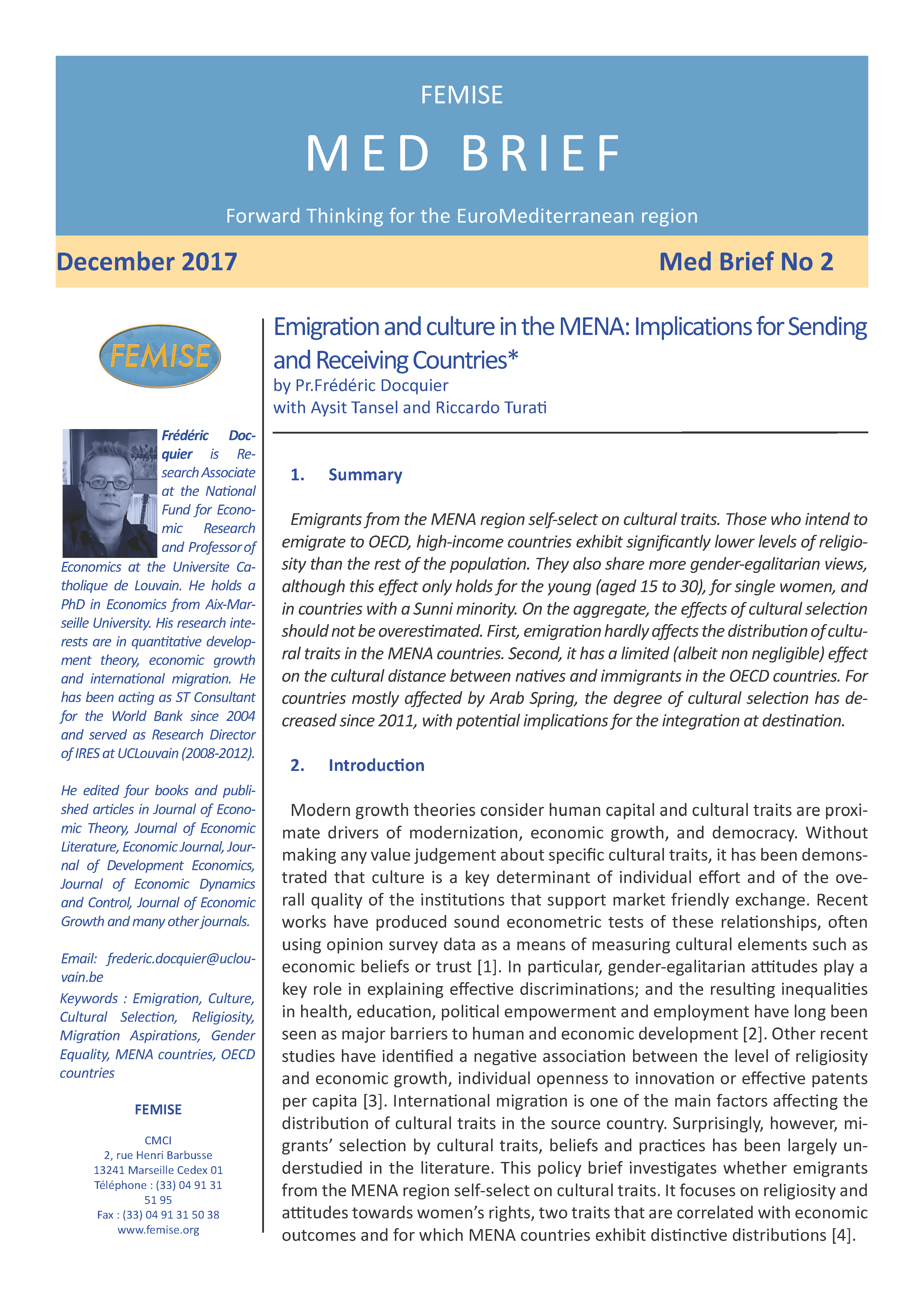 FEMISE is launching its new Policy Brief series MED BRIEF aspiring to provide Forward Thinking for the EuroMediterranean region. The briefs contain succinct, policy-oriented analysis of relevant EuroMed issues, presenting the views of FEMISE researchers and collaborators to policy-makers.
FEMISE is launching its new Policy Brief series MED BRIEF aspiring to provide Forward Thinking for the EuroMediterranean region. The briefs contain succinct, policy-oriented analysis of relevant EuroMed issues, presenting the views of FEMISE researchers and collaborators to policy-makers.

Pr. Frédéric Docquier (Universite Catholique de Louvain, FEMISE)
This policy brief, written by Pr. Frédéric Docquier (Universite Catholique de Louvain) looks at the issue of Emigration and culture in the MENA countries. Emigrants from the MENA region self-select on cultural traits. Those who intend to emigrate to OECD, high-income countries exhibit significantly lower levels of religiosity than the rest of the population. They also share more gender-egalitarian views, although this effect only holds for the young (aged 15 to 30), for single women, and in countries with a Sunni minority. On the aggregate, the effects of cultural selection should not be overestimated. First, emigration hardly affects the distribution of cultural traits in the MENA countries. Second, it has a limited (albeit non negligible) effect on the cultural distance between natives and immigrants in the OECD countries. For countries mostly affected by Arab Spring, the degree of cultural selection has decreased since 2011, with potential implications for the integration at destination.
Reminder, the first issue of MED BRIEF is available for download by clicking here.
 The policy brief has been produced with the financial assistance of the European Union within the context of the FEMISE program. The contents of this document are the sole responsibility of the authors and can under no circumstances be regarded as reflecting the position of the European Union.
The policy brief has been produced with the financial assistance of the European Union within the context of the FEMISE program. The contents of this document are the sole responsibility of the authors and can under no circumstances be regarded as reflecting the position of the European Union.

